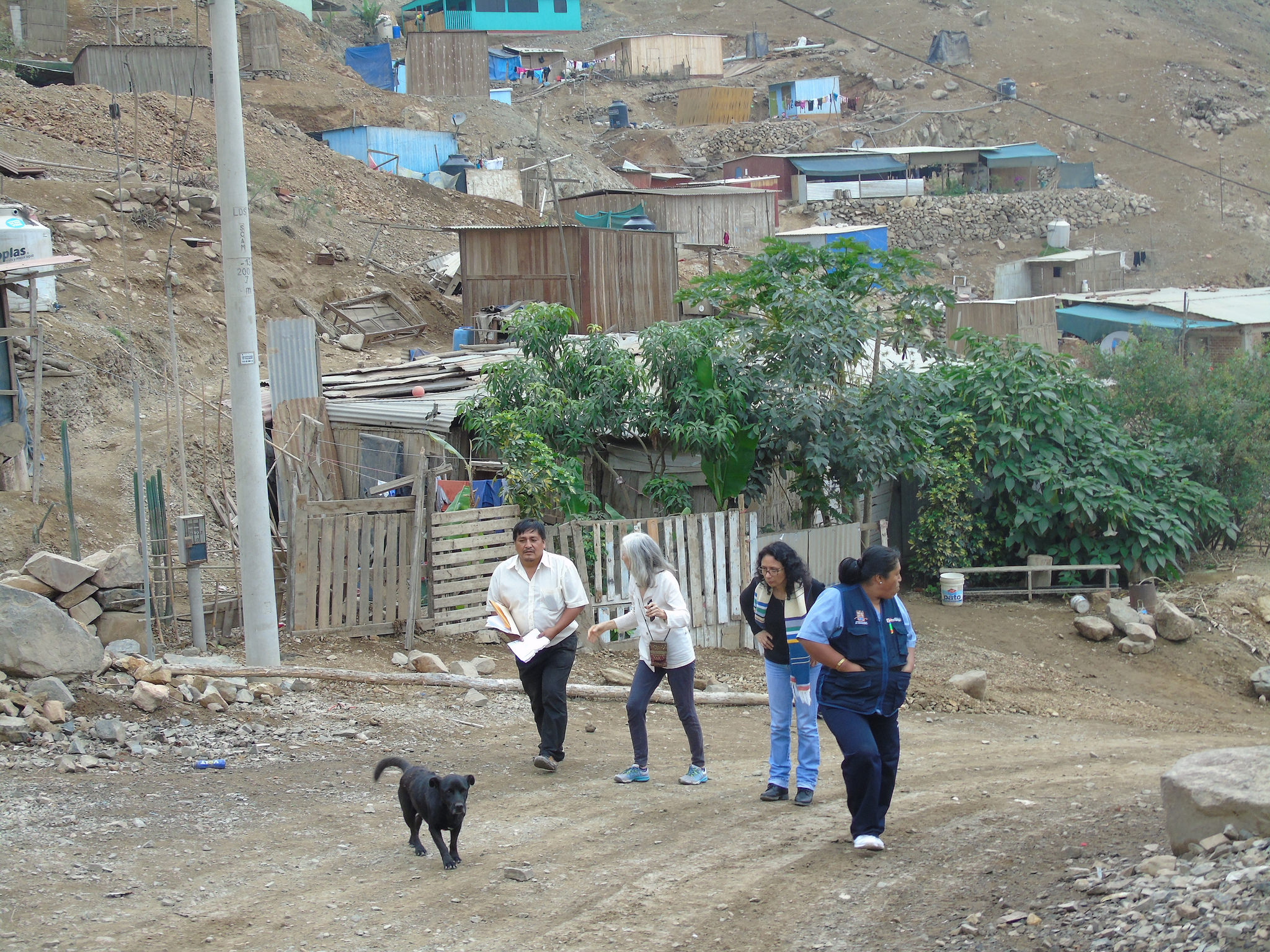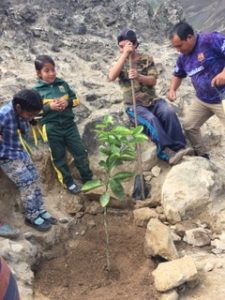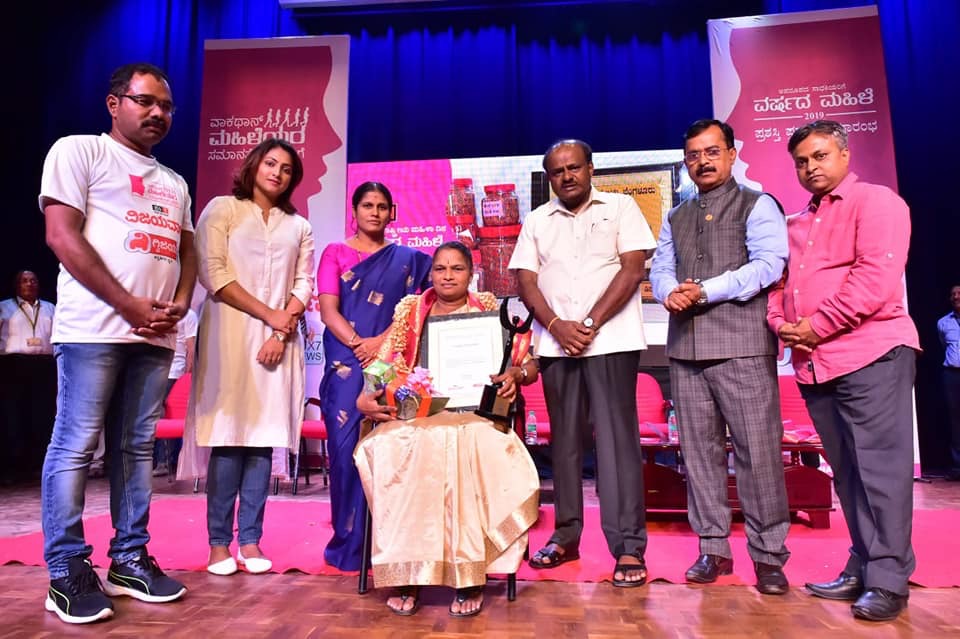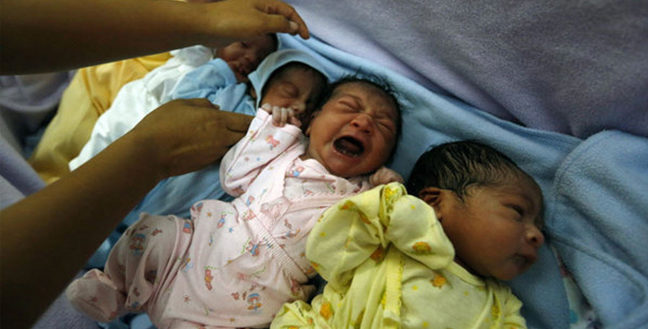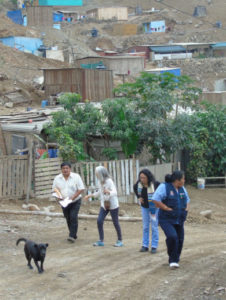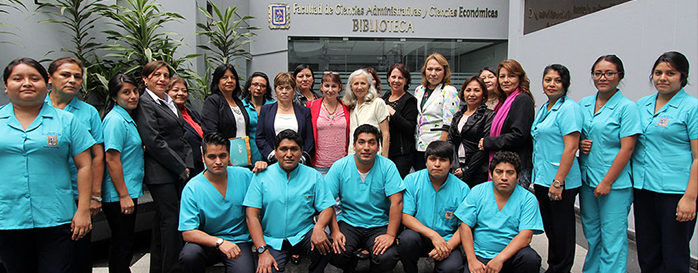The rural community of Pachacamac, Peru is poor, barren, and dusty. Rates of poverty, domestic violence, and child abuse are high. Most families live in simple shacks with inadequate water and sanitation, poor hygiene and limited access to nutritious foods. In addition, many are refugees from the Shining Path Maoist group years of terror from other parts of the country, now uprooted, still recovering from trauma. All of these challenges and stresses make for an environment that puts young children at a distinct disadvantage.
Enter Wawa Illari, an all-Subud team of professionals working in the fields of early childhood health, nutrition, and community development. Wawa Illari, which means “Child Star” in the native Quechua language, is a collaboration of three well-established Susila Dharma projects: A Child’s Garden of Peace (USA), Asociación Vivir (Ecuador), and ICDP (International Child Development Programme, Peru). Guided by the latihan at each step of the project, Wawa Illari offers a multi-faceted community approach to improving early childhood development — delivering educational workshops in parenting, nutrition, cooking and organic gardening to families of children ages 0-3. This innovative project provides children, their caregivers, and the larger community an arsenal of tools to build strong foundations for the very youngest to overcome challenges of poverty.
giving a hug.”
Wawa Illari stands out as a fantastic example of successful collaboration on multiple levels: community members working together to better the lives of their children, Susila Dharma projects working together to combat poverty from multiple angles, and Subud working together with grantors from outside of the Subud network. Setting a standard we hope to be replicated by future Susila Dharma projects, Wawa Illari applied for and received a grant from the Canadian government “to develop sustainable ways to promote and nurture healthy child and brain development in the first 1,000 days with a lasting impact on human capital in low-resource settings.” (Procuring this grant was no small accomplishment: over 800 applicants worldwide competed for the grant, and only Wawa Illari — the only Subud project to apply — received it.) The Canadian government grant provided most of the funds needed to establish an 18-month pilot project in Pachacamac, but some additional funding was still needed, so SDIA and several SD nationals stepped in with support.
The 18-month pilot project is just now concluding, and positive results are evident everywhere. Nurses have received new modules in their curriculum on the psychosocial and nutritional needs of the developing brain, parents have received trainings to develop enhanced caregiver-child interactions, families have received gardening resources and cooking classes. Participants from all areas of the project exude a new confidence and optimism, that in turn benefits the youngest members of the community.
Illène Pevec of A Child’s Garden of Peace reflected on results of the project. Formerly brown and barren neighborhoods are increasingly showing signs of green. Container gardens have been established at all project homes and around the community. Each family got to choose a fruit tree to plant: lemon, mandarin, peach, or apple. The preschool and health center, surrounded by dusty ground and slabs of cement, received fruit trees and maringa* trees as well.
In addition, A Child’s Garden of Peace trained a team of garden educators (health promotoras), each of whom was responsible for sharing knowledge, skills and supplies with families in the community. These women, also local residents and many of them parents, made weekly visits to families, bringing seeds, organic fertilizer, and sharing gardening and nutrition training (one educational message per week). While the whole community has benefitted from the work of the project, these women are among the most impacted. They have learned a lot, and also got a chance to provide much-needed income to their families. Illène reflected on seeing them after a year in the program: they were confident in their work, carrying plants, seeds, soil, recipes, food and information to all their families weekly for a year—climbing up and down the hills daily with babies in arms, even while wearing flip flops. The health promotoras covered very challenging terrain and did so with a smile and encouragement for the families they served.
Maria, one of the health promotoras, recalled that when she was a child someone from her school told her parents she was “slow,” and she had always thought she could not learn. Working with Wawa Illari, however, she realized that not only could she learn all that was taught to her, but she could teach others as well. Her self esteem sky rocketed. The program gave her self confidence and a sense of contribution to her community.
Ana, another health promotora, reflected that before participating in the ICDP trainings, she thought that showing love to her child meant buying something and giving it to the child. She has since learned that showing love means listening and communicating and giving a hug. She said she has also learned patience, a sentiment shared by many mothers. Parents who were brought up with hits and yells have learned to speak kindly and with affection. The ICDP component is one of the most challenging portions of the program because it requires the parents to learn new behaviors in their families. In Illène’s words, “Bravo to all these parents willing to grow on behalf of their children!”
Another health promotora, Julia, has a special needs teen-aged daughter who is bed-bound. Julia recently joined a support group for parents of special needs children. At a recent meeting, she told others in the group some of the things she had learned about parenting from ICDP. The others were so enthusiastic they arranged for her to make a presentation to another group of parents (families who had not been part of Wawa Illari’s pilot project) in the coming year on all she had learned from ICDP and Wawa Illari.
From parents to nurses to family gardens, Wawa Illari’s work has touched so many lives, and laid a framework for continued support and nurturing of the community’s youngest. As each of the promotoras has grown, so too can the community grow and better nurture its children. Thanks to the sincere and caring efforts of so many, a strong network of support, and guidance from the latihan, this has really been a fantastic collaboration.
The health promotoras have shared instructions with families on how to save seeds (some of last year’s plants are already producing new seeds that can be planted again!) and they have distributed more seeds for next season’s planting. With this fruitful and successful start, the Wawa Illari team is now assessing children’s health and testing on how to best proceed with the project.
*The Maringa tree is Maringa Oleifera, a fast growing tree native to India. While it can be invasive, its leaves, fruits and seeds are all valuable for food, oil, water purification and medicine, and fodder for animals.


